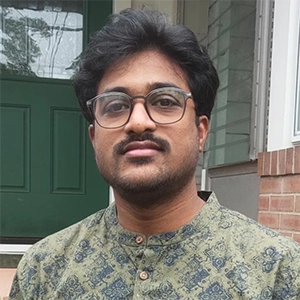
Postdoctoral Researcher | Biogeochemistry
Venkatesh Chinni
Short Bio
I am interested in understanding the distribution of trace metals in the ocean in terms of their sources, sinks and internal cycling. Bioavailability of these trace metals (which are micro-nutrients) has a direct impact on primary production, community structure and hence ultimately can regulate the carbon cycle. I am currently involved in the ARTEMIS project under the supervision of Prof. Robert Sherrell at the department of Marine and Coastal Sciences to study the dynamics of trace metals in the Amundsen Sea.
I did my Ph.D. from Physical Research Laboratory (A unit of Department of Space, Government of India) in the field of biogeochemistry. I mainly got fascinated by the concept of “Iron Hypothesis” and the role of trace metals in the ocean and ultimately motivated me to work in the field of trace metal biogeochemistry. Apart from research work, I enjoy playing football, cricket, travelling, and cooking.
Google Scholar link
https://scholar.google.co.in/citations?user=iDIo_DMAAAAJ&hl=en&oi=ao
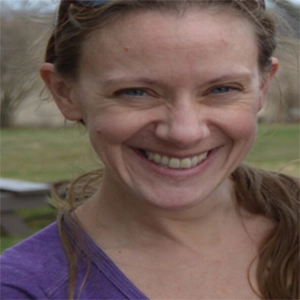
Postdoctoral Researcher | Coral Biomineralization
Jeana Drake
Short Bio:
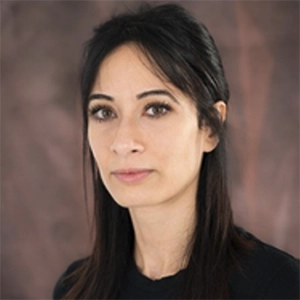
Postdoctoral Researcher | Physical Oceanography & Ocean Modeling
Youstina Elzahaby
Short Bio:
Dr. Youstina Elzahaby is a recent graduate who has received her PhD in Mathematics with a geophysical fluid dynamics major. Youstina’s research interests are predicting Marine Heatwaves using Machine Learning. While at Rutgers, she will conduct research on elements of the design, development and evaluation of a prototype East Coast Community Ocean Forecast System (ECCOFS) that implements data-assimilation of real-time observations in a Regional Ocean Modeling System (ROMS) model of the western North Atlantic Ocean and U.S. coastal and shelf waters.
Youstina received her PhD in Geophysical Fluid Dynamics at the University of New South Wales, Sydney Australia in 2024
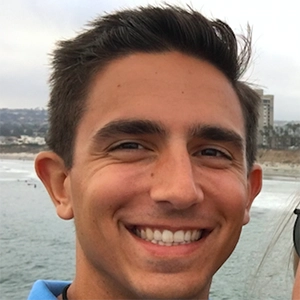
Postdoctoral Researcher | Caribbean Sea Research
Joseph Gradone
Downloads
Research Interests
While I consider myself a physical oceanographer, I also consider myself a sort of “jack of all trades” rather than a “master of one”. Broadly, I am interested in utilizing my background in industry, science, and engineering to leverage and develop different ocean-observing technologies to solve problems of practical and societal importance. At the highest level, my research centers on understanding how the ocean transports important tracers (heat, salt, nutrients, etc.). I am fundamentally interested in how global warming may change ocean circulation, thereby impacting the transport of these tracers and the feedbacks that connect these processes. My present research is focused on understanding the processes mixing climatically important water masses in the Caribbean Through-Flow using Slocum gliders and targeted modeling experiments. This work is part of a National Science Foundation (NSF) project that I am a Co-PI on along with Travis Miles (Rutgers), Ruoying He (NS State), and Doug Wilson (UVI).
Short History
While I grew up in New Jersey, only 10 miles from campus, I have zig-zagged throughout the US for schooling, research experiences, and jobs. I received my Bachelor of Science degree in Geology from the University of Colorado Boulder in 2016 and my Master of Science degree in Oceanography from the University of Delaware under the direction of Dr. Matthew Oliver in 2018. My master’s research investigated the impacts of sea surface kinetic energy on phytoplankton blooms in the Southern Ocean through the use of remote sensing, ocean models, and biogeochemical Argo floats. From 2018 to 2020, I worked for Teledyne Webb Research on Cape Cod as a Slocum glider Customer Support Applications Engineer. From 2020 to 2024, I completed my PhD studying the circulation dynamics of the Caribbean Through-Flow under the supervision of Dr. Travis Miles. For my PhD research, I used a combination of Slocum gliders and ocean reanalysis output to investigate the volumetric transport and transformation of climatically important water masses that comprise the upper-limb of the Atlantic Meridional Overturning Circulation (AMOC) flowing through the Caribbean.

Postdoctoral Researcher | Geochemistry & Paleoclimatology
Julia Rieke Hagemann
Short Bio:
Dr. Julia Hagemann is a researcher with a focus on reconstructing Mg/Ca temperature on foraminifera. During the summer of 2019, as a graduate student, Julia participated on the expedition 379T, aboard D/V JOIDES Resolution expedition 379T, as a sedimentologist participant. The primary objective of the expedition was to investigate the link between oceanographic changes at the northern margin of the Antarctic Circumpolar Current and climate variability on the Southern American continent over the past few glacial-interglacial cycles.
During her time at Rutgers, Julia will work on NSF funded project titled, “Long term perspective on the Holocene Co2 Conundrum: the role of Southern Westerly Winds”, where she will focus her research on the core in which she collected at site J1001 to reconstruct the variation of the Patagonian ice sheet on orbital time scales.
Julia received her PhD from the Alfred- Wegener- Institute (AWI) Helmholtz Centre for Polar and Marine Research), Bremerhaven, Germany in 2023.
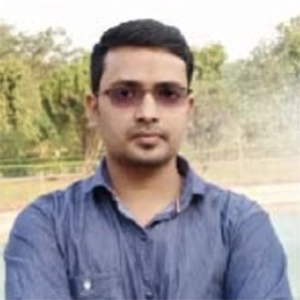
Postdoctoral Researcher | Physical Chemistry
SK Imadul Islam
Short Bio:
Dr. SK Imadul Islam will be responsible for using existing molecular modeling and simulation tools to engineer protein scaffolds, toward the goal of developing simple, protein-based metallo-catalysts that replicate early life enzymes. Imadul will construct these molecules either by solid-phase peptide synthesis or recombinant expression and reconstitute with appropriate metal cofactors. Imadul will characterize protein structure, metal binding and catalytic activity using established biophysical, spectroscopic and electrochemical tools – EPR, CD, voltammetry.
Imadul received his PhD in Chemistry from S.N. Bose National Centre for Basic Sciences, India, in 2021

Postdoctoral Researcher
Frank McQuarrie
Downloads
Short Bio
Dr. Frank McQuarrie is an oceanographic engineer who got his Bachelor’s from Rutgers in 2016. He was deployed to Palmer Station, Antarctica twice with the Schofield lab, spent a few years working at the Catalina Island Marine Institute teaching marine sciences and surfing, then completed a PhD at the University of Georgia. He is excited to be back at Rutgers working with Dr. Travis Miles on the National Academies UGOS project, leveraging glider data to understand currents and ocean movements in the Gulf of America.
Research Interests

Postdoctoral Researcher | Paleoceanography
- DMCS
Renjie Pei
Short Bio:
Dr. Renjie Pei is a paleoceanographer with a focus on reconstructing past sea surface temperatures (SST) and understanding climatic changes during the late Pleistocene and Holocene periods. Renjie started year 1 of her postdoctoral research at San Diego State University (SDSU) in the Department of Earth and Environmental Sciences with collaborator, Dr. Samantha Bova.
During her 2nd year at Rutgers, she will be responsible for producing records of past sea surface temperatures using geochemical indicators preserved in marine sediments, interpreting these datasets, and communicating results via conference presentations and journal articles.
Renjie received her PhD from Christian-Albrechts-Universität in Kiel, Germany in 2021
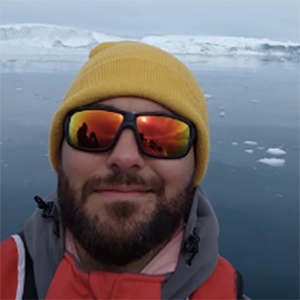
Postdoctoral Researcher | Microbiology
Matteo Selci
Short Bio
I am fundamentally interested in the processes that link the biosphere and geosphere. My current research focuses on the diversity and the ecological role of microbes in extreme environments. In my work, I use data from comparative genomic and environmental surveys with computational approaches to understand the influence of different microbial metabolisms on small and large spatial scales. I have conducted several field studies around the world, sampling hot springs spanned in Italy, and Central and South America, drilling permafrost in the Arctic, and diving into the depth of the ocean looking for hydrothermal vents. I have a master’s degree in Marine Biology (2019) at the UNIVPM (Italy) and a Ph.D. (2023) at the University of Naples, Federico II (Italy). During my time at Rutgers, I will be working with Prof. Costantino Vetriani to investigate the role of biofilm associated with deep-sea hydrothermal vents and larvae settlement. Outside of the lab, I enjoy scuba diving, hiking, photography, and cooking.
